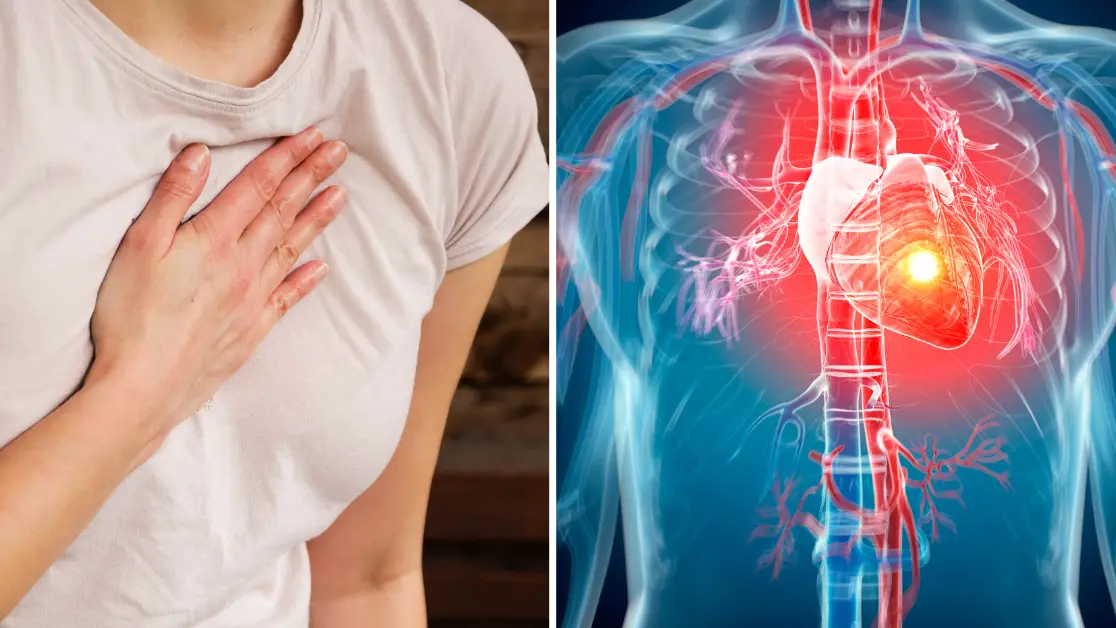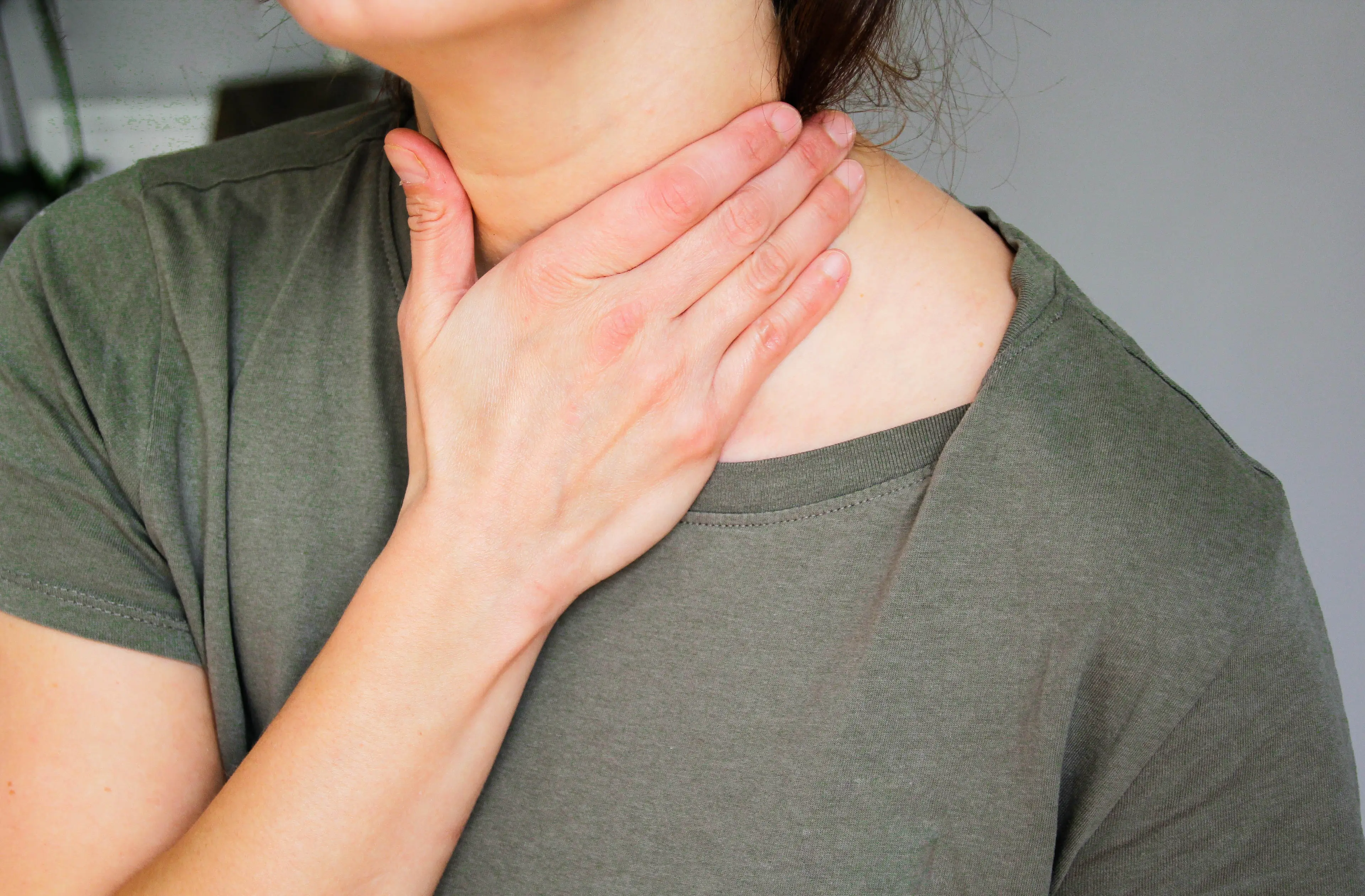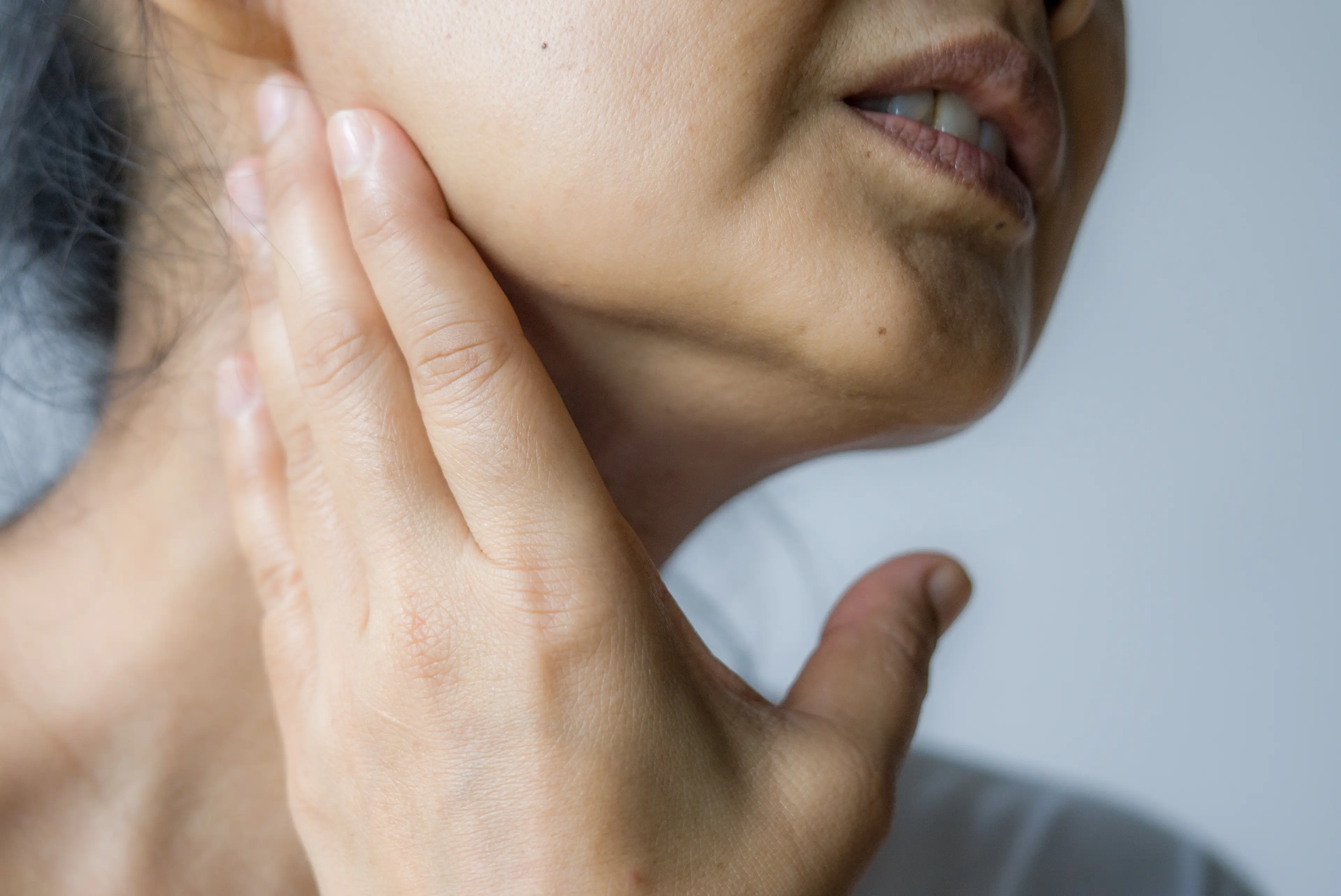
A hospital worker has recalled the horrifying story of a female colleague who suddenly suffered a cardiac arrest whilst on shift.
But prior to the major scare, the female administrative assistant only showed one, rather common indicator of ill health that is actually more persistent in women and is likely to be ignored.
The incident was described online by an anonymous Reddit user, who is currently working in the industry as a biomedical student.
Looking back, they began by describing the niche symptom in question: "Last week one of our admin staff presented to the ED after experiencing jaw/neck pain that proceeded to chest pain."
Advert
The unnamed student went on to confirm that help was immediately on hand to treat their co-worker.
"She ended up arresting in front of the triage desk but was successfully brought back by CPR," they continued. "And is now recovering from surgery to place stents."

The most common symptoms of a heart attack are ceaselessly emphasised by medical professionals, due to the immediate attention they require and their potentially high threat to life.
Chest pain is largely considered the most obvious sign that something sinister is going on behind the scenes, along with shooting pains in the left arm and shortness of breath.
Secondary indicators of the condition usually consist of back and stomach pain, feelings of lightheadedness, sweating, nausea, and an overwhelming feeling of panic.
In their post, however, the medical student went on to confess that despite their extensive knowledge of the field, they 'genuinely didn't know' that 'jaw/neck pain is a common warning sign' for a heart attack.
According to Duke Health, however, the niche symptom is largely unknown due to the fact it most commonly applies to women, and is rarely suffered by men enduring a cardiac arrest.

The healthcare firm explain that whilst men common complain about the feeling of an elephant sitting on their chests whilst in the midst of a heart attack, women usually feel the pain in more obscure places - like the neck, jaw and shoulder blades.
Women are also said to be most at risk of experiencing general fatigue prior to a cardiac arrest, as well as sensations like indigestion and heartburn.
The timing of said pain is also said to differ between men and women.
Duke Health cardiologist, Dr Radha Kachhy, previously explained: "If it happens during times of exertion, it should be taken seriously. One of my patients said her shoulder hurt every time she walked.
"She thought it was her purse, but her shoulder throbbed even when she wasn’t holding her purse."
Dr Kachhy also raised awareness of the hard truth that women are more likely to brush off symptoms of ill health, especially when it comes to symptoms of a heart attack.

"I have patients who experienced symptoms of a heart attack and said, 'Well, I decided to do the laundry first. When it didn’t get better, I went to the doctor,'" the cardiologist claimed.
"Time is muscle. The longer you wait, the more heart muscle damage can be done."
Asked the best means of preventing a heart attack, she advised women to 'know their numbers', referring to their blood pressure, blood glucose, cholesterol, and body mass index (BMI)
"If you know you have some risks for heart disease, if you smoke, or if you are overweight, making lifestyle changes - like improving your diet and exercising more - can lower that risk," she explained.
Topics: Health, Life, Real Life, True Life, Women's Health